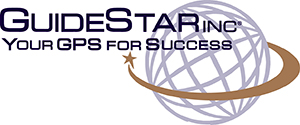Leadership in and for the 21st Century
Globalization and technology are demanding more of leaders in today’s world. Organizational leaders must learn to develop and rely upon leaders throughout their businesses. Read more about this in Leadership in and for the 21st Century (PDF).
Organizational Choice, Strategy, and Change
Leaders and managers exercise their right and responsibility to choose between alternatives on a daily basis, but few recognize that the choices they make, however small, can have a direct impact upon the company’s “trajectory” – the path the organization is taking toward its future success. Read more about this in Organizational Choice, Strategy, and Change (PDF).
Making an Ally of Resistance to Change
Those who believe that the pressure to change will resolve once they get over the “next change” are in for a rude awakening. Those who approach change as something to be embraced rather than to be overcome will be most successful in the 21st Century. Read more about how to make an ally of resistance to change through effective organizational, interpersonal, group, and individual strategies that address impediments to change in Making an Ally of Resistance to Change (PDF).
Modeling Effective Change Leadership
A leader’s primary role is guiding change throughout an organization, but this role has been distorted such that most American businesses are now over-managed and under-led. This paper addresses characteristics of action systems leaders need to build for effective growth along with the challenges of turning “traditional” structures into 21st century organizations with fewer managers but more leaders. The paper addresses the importance of having the right change model to guide organizational transformation and focuses on Kotter’s eight-step change model as a highly regarded and feasible tool for this purpose. Finally, the paper addresses the challenge of change within different company cultures evident in the workplace today. Read more about this in Modeling Effective Change Leadership (PDF).
Knowledge Creation as the 21st Century Competitive Advantage
Knowledge is essential for innovation and growth, but few organizations are successful in creating new knowledge that will provide a competitive edge. Read more about this in Knowledge Creation as the 21st Century Competitive Advantage (PDF).
Working as Teams Rather than Groups
Although many companies claim to use teamwork and tout it as a core competence, most organizations use groups disguised as teams and wonder why their results are less than stellar. This paper addresses major differences between these structures, the value of team charters in building cohesiveness and collective identity within teams, and the attributes of effective and high-performing teams. Read more about effective teams in Working as Teams Rather than Groups (PDF).
Improving Team Performance: Communication and Collaboration
Poor communication is a primary contributor to poor performance. This paper discusses the critical role of communication competence as well as using the “Spiral of Knowledge” to create cohesion and improve performance. This paper also addresses the power of team communication in the Age of the Internet where asynchronous communication patterns have become the norm. Read more about creating collaborative teams in Improving Team Performance: Communication and Collaboration (PDF).
Contact HRBoost® to learn more about how Character-based Capitalism Programs can help your clients or company achieve performance excellence. Email: info@hrboost.com

